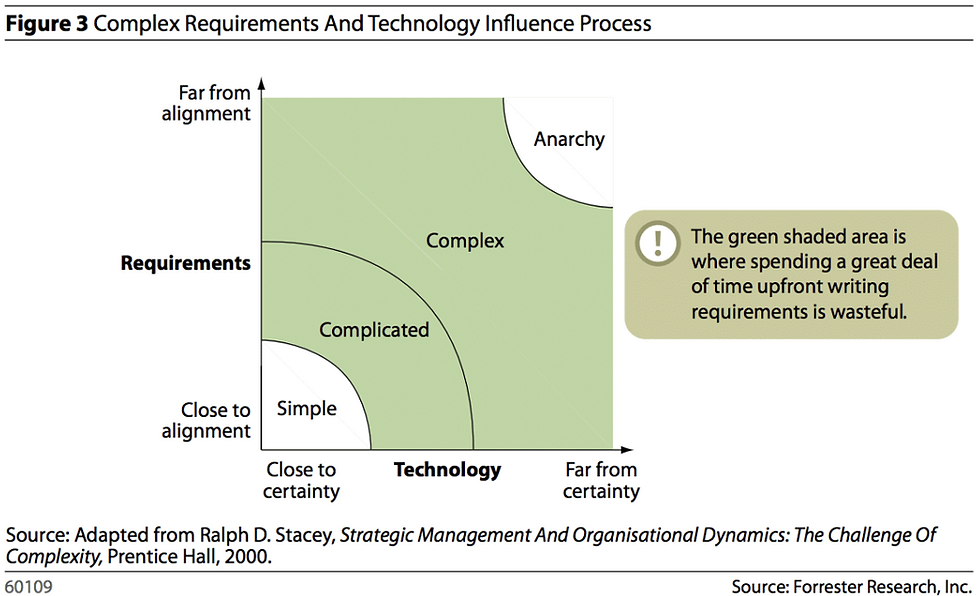The Truth About Project Management: More Than Just Task Assignments and Deadlines
- Violet Swierkot
- Mar 5, 2025
- 4 min read

Project management often carries a reputation as a simple, administrative function—assigning tasks, monitoring deadlines, and sending reminders. Many believe that "anyone can do it." But seasoned project managers will tell you a different story. The reality is that project management is a complex, high-stakes profession that demands strategic thinking, leadership, and adaptability. In this article, we explore the pros and cons of project management and debunk common myths surrounding the role.
What Does a Project Manager Do?
Far from being a glorified task tracker, a project manager (PM) is responsible for guiding projects from conception to completion. Their daily responsibilities include:
Planning and Defining Scope:
Establishing clear project objectives and deliverables.
Aligning project plans with stakeholder expectations.
Creating structured roadmaps to minimise risks and uncertainties.
Resource Management:
Allocating budgets, manpower, and materials effectively.
Avoiding overuse of resources while preventing shortages.
Ensuring teams have the necessary support to meet project goals.
Risk Management:
Identifying potential roadblocks early.
Implementing contingency plans to mitigate disruptions.
Ensuring flexibility in adapting to unforeseen circumstances.
Communication and Collaboration:
Serving as the bridge between technical and non-technical stakeholders.
Keeping teams aligned and motivated.
Resolving conflicts and facilitating smooth workflows.
Monitoring Progress:
Tracking milestones and performance metrics.
Using project management tools to oversee timelines and deliverables.
Making real-time adjustments to keep projects on course.
Problem-Solving:
Addressing unexpected challenges.
Finding innovative solutions to maintain momentum.
Keeping projects aligned with business objectives.
Delivering Results:
Ensuring projects meet their original goals.
Balancing budget, time, and quality constraints.
Driving impact through strategic execution.
Pros of Being a Project Manager
Despite its challenges, project management offers significant rewards:
High Demand Across Industries:
Project management skills are essential across multiple sectors, from IT and construction to healthcare and finance.
The demand for project managers is projected to grow significantly by 2030.
Competitive Salary and Benefits:
PMs earn lucrative salaries, with PMP-certified professionals making up to 16% more than their uncertified counterparts.
Many companies offer bonuses tied to project success.
Leadership with Tangible Impact:
PMs directly influence project outcomes, making strategic decisions that shape businesses.
Many successful executives, like Jeff Bezos, started in project management roles.
Career Flexibility:
Project management skills are transferable across industries.
PMs can transition into roles like Programme Manager, Portfolio Manager, or even C-suite positions.
Continuous Learning and Growth:
The field offers exposure to various methodologies, including Agile, Scrum, and Lean Six Sigma.
PMs constantly develop new skills, making the role intellectually stimulating.
The Thrill of Problem-Solving:
Each project presents unique challenges, keeping work dynamic and engaging.
Experienced project managers excel at navigating complexity and uncertainty.
Sense of Accomplishment:
Seeing a project through from inception to completion is highly rewarding.
Successful projects leave a lasting impact on businesses and communities.
Global Opportunities and Travel:
Many PM roles involve international collaboration and travel.
This exposure enhances career prospects and cultural awareness.
Cons of Being a Project Manager
While rewarding, the profession has its challenges:
High Stress Levels:
Managing multiple stakeholders and tight deadlines can be overwhelming.
Many PMs experience burnout due to high expectations.
Work-Life Balance Challenges:
Projects often demand long hours, especially during critical phases.
Maintaining a work-life balance can be difficult.
Accountability for Failures:
PMs are often held responsible for project setbacks, even if issues arise from external factors.
Constant Adaptability:
The dynamic nature of projects requires frequent adjustments, which can be exhausting.
Dependence on Team Performance:
PMs rely on teams and external vendors, making success dependent on others.
Managing Stakeholder Expectations:
Conflicting interests and shifting priorities make stakeholder management complex.
Lack of Recognition:
While project managers play a vital role, their efforts often go unnoticed compared to end-product success.
Repetitive Administrative Tasks:
Beyond leadership and strategy, PMs handle significant administrative work, such as budgeting and reporting.
Career Plateau:
Without upskilling or certifications, career progression can stall.
Emotional Toll:
Navigating conflicts, team disputes, and project failures can be mentally draining.
Common Myths About Project Management
"Project Management Is Just Following a Plan."
Reality: Plans often change due to unforeseen circumstances. Adaptability is key.
"Anyone Can Be a Project Manager."
Reality: Success requires a mix of leadership, emotional intelligence, and strategic decision-making.
"Project Management Is Only for Big Companies."
Reality: Small businesses and start-ups benefit greatly from structured project management.
"Software Tools Can Replace Project Managers."
Reality: Tools assist in workflows, but human judgment and leadership are irreplaceable.
"Projects Always Go as Planned."
Reality: Scope creep, budget overruns, and unexpected risks make flexibility essential.
"All Projects Are Managed the Same Way."
Reality: Different industries require different methodologies (Agile for IT, Waterfall for construction, etc.).
"Project Managers Have Full Authority."
Reality: PMs often work within a matrix structure with shared decision-making.
"Certifications Are All You Need."
Reality: Experience, leadership, and adaptability matter just as much as certifications.
"Project Management Is a Solo Job."
Reality: It requires collaboration, stakeholder management, and teamwork.
"The Role Ends Once the Project Is Delivered."
Reality: Post-project analysis and continuous improvement are crucial for future success.
Final Thoughts
Project management is far more than just tracking tasks and deadlines. It is a dynamic, challenging, and highly rewarding profession that requires a blend of technical expertise, leadership, and adaptability. Whether you are considering a career in project management or want to refine your understanding of its complexities, embracing its realities will prepare you for success.
So next time someone says, "Anyone can do project management," you’ll know the truth—it takes a lot more than meets the eye.



Comments